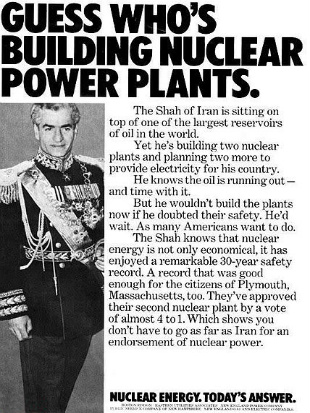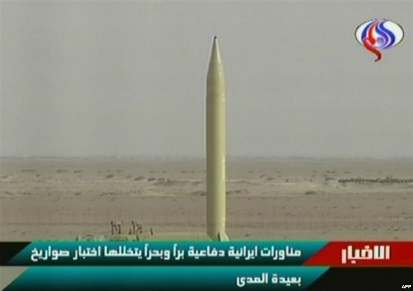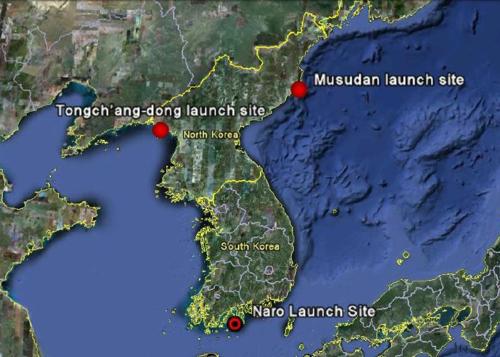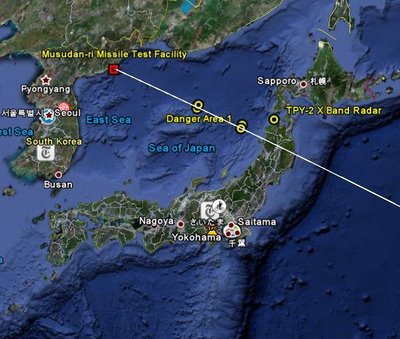It looks like you're using an Ad Blocker.
Please white-list or disable AboveTopSecret.com in your ad-blocking tool.
Thank you.
Some features of ATS will be disabled while you continue to use an ad-blocker.
8
share:
I would like to try and dissect the similarity's Iran and North Korea are running,when it comes to their Nuclear Ambitions.
Lets start of with Iran.
It all started,Ironically with Uncle Sam....

As far back as 1974,America was worried,that this type of technology could fall into the wrong hands....
After the revolution in 1979,Iran continued to acquire technology,for its Nuclear Ambitions...
Iran's Current Nuclear Timeline (in a nutshell).
All the while Iran claims that its Nuclear ambitions are for peaceful purposes...and still does today.

You will find that the word "secret" is used in both of these country's programs. Why you may ask?
Look No further to North Korea.
Lets start of with Iran.
It all started,Ironically with Uncle Sam....
In 1967, under the "Atoms for Peace" program launched by President Eisenhower, the US sold the Shah of Iran's government a 5-megawatt, light-water type research reactor.

As far back as 1974,America was worried,that this type of technology could fall into the wrong hands....
A 1974 Defense Department memorandum, recently declassified and posted on-line by the National Security Archive, noted that stability in Iran depended heavily on the Shah's personality. Should he fall, "domestic dissidents or foreign terrorists might easily be able to seize any special nuclear materials stored in Iran for use in bombs".
After the revolution in 1979,Iran continued to acquire technology,for its Nuclear Ambitions...
Iran's Current Nuclear Timeline (in a nutshell).
January 2002 - US President George Bush describes Iraq, Iran and North Korea as an "axis of evil", warning of the proliferation of long-range missiles being developed in these countries. The speech causes outrage in Iran and is condemned by reformists and conservatives alike
All the while Iran claims that its Nuclear ambitions are for peaceful purposes...and still does today.
November 2003- Iran says it is suspending its uranium enrichment programme and will allow tougher UN inspections of its nuclear facilities. IAEA concludes there is no evidence of a weapons programme.
August-September 2005 - Tehran says it has resumed uranium conversion at its Isfahan plant and insists the programme is for peaceful purposes. IAEA finds Iran in violation of the nuclear Non-Proliferation Treaty.
May 2008 - IAEA says Iran is still withholding information on its nuclear program.
July 2008- Iran test-fires a new version of the Shahab-3, a long-range missile it says is capable of hitting targets in Israel.

October 2009 - Five permanent UN Security Council members plus Germany offer Iran proposal to enrich its uranium abroad. November 2009 - Iran refuses to accept the international proposal to end the dispute over its nuclear programme. UN nuclear watchdog IAEA passes a resolution condemning Iran for developing a second uranium enrichment site in secret.
November 2011 - A recent International Atomic Energy Agency (IAEA) report, based on the intelligence of 10 governments, presented images, letters and diagrams that suggested Iran was secretly working on nuclear weaponry. Iran's envoy to the IAEA says any nuclear development is for peaceful means and that the material evidence against has been fabricated by the US.
You will find that the word "secret" is used in both of these country's programs. Why you may ask?
Look No further to North Korea.
North Koreas Nuclear timeline (in a nutshell).


As we can see,North Korea had always wanted a Nuclear bomb.It was willing to hide,and lie to the World,to attain it.
What does this have to do with Iran?
Iran has followed the same game plan.To a tee.
Not only that,both country's have been sharing knowledge of their peaceful nuclear ambitions.
It was Uncle Sam who first gave Iran nuclear equipment
Iran's nuclear timeline
Chronology of U.S.-North Korean Nuclear and Missile Diplomacy
Iran Fortifies Its Arsenal With the Aid of North Korea
1993: North Korea says it has quit the Nuclear Nonproliferation Treaty amid suspicions that it is developing nuclear weapons. It later reverses that decision.
Aug. 31, 1998: North Korea fires a multistage over Japan and into the Pacific Ocean, proving it can strike any part of Japan's territory.


Sept 1998: U.S. President Bill Clinton eases economic sanctions against North Korea.
July 2000: North Korea again threatens to restart its nuclear program if Washington doesn't compensate for the loss of electricity caused by delays in building nuclear power plants.
Oct. 2002: A visiting U.S. delegation says North Korean officials revealed that the country has a second covert nuclear weapons program in violation of the 1994 agreement -- a program using enriched uranium. North Korea later denies this.
Dec. 2002: North Korea removes monitoring seals and cameras from its nuclear facilities
June 2003: North Korea lifts its war of words with the United States to a new level, saying it may now need nuclear weapons to combat what it describes as a hostile threat from Washington.
Oct 2006 North Korea announces that it has performed its first-ever nuclear weapon test. The country's official Korean Central News Agency said the test was performed successfully and there was no radioactive leakage from the site. South Korea's Yonhap news agency said the test was conducted at 10:36 a.m. (1:36 a.m. GMT) in Hwaderi near Kilju city, citing defense officials. The USGS detected an earthquake with a preliminary estimated magnitude of 4.2 at 41.311°N, 129.114°E
As we can see,North Korea had always wanted a Nuclear bomb.It was willing to hide,and lie to the World,to attain it.
What does this have to do with Iran?
Iran has followed the same game plan.To a tee.
Not only that,both country's have been sharing knowledge of their peaceful nuclear ambitions.
The Feb. 24 cable, which is among those obtained by WikiLeaks and made available to a number of news organizations, makes it clear that American intelligence agencies believe that the complete shipment indeed took place, and that Iran is taking pains to master the technology in an attempt to build a new generation of missiles. The missile intelligence also suggests far deeper military — and perhaps nuclear — cooperation between North Korea and Iran than was previously known. At the request of the Obama administration, The New York Times has agreed not to publish the text of the cable.
It was Uncle Sam who first gave Iran nuclear equipment
Iran's nuclear timeline
Chronology of U.S.-North Korean Nuclear and Missile Diplomacy
Iran Fortifies Its Arsenal With the Aid of North Korea
edit on
22-2-2012 by sonnny1 because: (no reason given)
Those who believe Iran is only seeking out Peaceful Nuclear ambitions,need only to see the above timelines,and keep a high dose of skepticism ever
ready.
Even if Iran is working on a nuclear weapons program, they don't have the capability to strike the US. Israel would be their target, and I have no
empathy for the Israeli government & Mossad. They brought this upon themselves, and I hope the United States stays out of it.
It's funny, because if all this was about nuclear weapons, then surely N Korea should be on the the top of the target list and not Iran. N Korea also
has a much worse human rights record then Iran and is just as much a threat to S korea as Iran is to Israel, so why is Iran the number one target.
All this means is war or the world, i.e. the u.s., accepts Iran and n.korea to the big boys table.
Obviously the think tanks foresaw this, that's why they stole Iraqs oil and have no reason or inclination to strike Iran.
They have more than enough oil in their control for decades.
Israel on the other hand is different story. I expect war between these two evenly matched countries.
With the u.s sitting out unless attacked by Iran. Even then just limiting themselves to aitstrikes.
Obviously the think tanks foresaw this, that's why they stole Iraqs oil and have no reason or inclination to strike Iran.
They have more than enough oil in their control for decades.
Israel on the other hand is different story. I expect war between these two evenly matched countries.
With the u.s sitting out unless attacked by Iran. Even then just limiting themselves to aitstrikes.
well there is not too much interest in North Korea as they dont make much OIL (if any).
Iran does, that's why the USA wants it.
Iran does, that's why the USA wants it.
edit on 22/2/2012 by diddy1234 because: (no reason given)
reply to post by sonnny1
I believe that they are seeking a weapon and who could blame them? Seems like a nuclear weapon provides a good deterrent to attack these days, especially when others in your region have hundreds of nukes many of which will be targeted on Iranian cities.
I believe that they are seeking a weapon and who could blame them? Seems like a nuclear weapon provides a good deterrent to attack these days, especially when others in your region have hundreds of nukes many of which will be targeted on Iranian cities.
reply to post by randomname
I see this common misconception often.
I often ask the person saying this for proof of this claim, yet none can provide more than internet assumptions and accusations.
"US Stole Iraqi oil"
Is it simply ignorance of the facts, or is it just internet propaganda?
I see this common misconception often.
I often ask the person saying this for proof of this claim, yet none can provide more than internet assumptions and accusations.
"US Stole Iraqi oil"
Is it simply ignorance of the facts, or is it just internet propaganda?
Originally posted by ScarletWitch
reply to post by randomname
I see this common misconception often.
I often ask the person saying this for proof of this claim, yet none can provide more than internet assumptions and accusations.
Hmmmm.
Is it an assumption that both regimes have followed the same path ? I am not saying this is proof Iran HAS the bomb. I am saying this is proof Iran is following a very similar path. There is no misconception,unless you want to show me they are NOT following the same path.
edit on 22-2-2012 by sonnny1 because: (no reason given)
Originally posted by woodwardjnr
reply to post by sonnny1
I believe that they are seeking a weapon and who could blame them? Seems like a nuclear weapon provides a good deterrent to attack these days, especially when others in your region have hundreds of nukes many of which will be targeted on Iranian cities.
Well,You might be right with a deterrent....... My only fear would is eventually,the more Nations that have a bomb,the more of a chance someone might just use them.
reply to post by DaTroof
Iran doesnt have to stike the US, it already has the capability to reach Paris and most of Europe, not to mention Saudi Arabia, how would total disruption of the worlds oil supply affect US interest, follwed by the fall of European econemy's, Iran isnt as crazy as we are all led to believe, its infact very clever.
Iran doesnt have to stike the US, it already has the capability to reach Paris and most of Europe, not to mention Saudi Arabia, how would total disruption of the worlds oil supply affect US interest, follwed by the fall of European econemy's, Iran isnt as crazy as we are all led to believe, its infact very clever.
Originally posted by DaTroof
Even if Iran is working on a nuclear weapons program, they don't have the capability to strike the US. Israel would be their target, and I have no empathy for the Israeli government & Mossad. They brought this upon themselves, and I hope the United States stays out of it.
As bold as Iran is now, imagine the boldness and belligerence of a nuclear Iran. They are calling out and instigating the worlds nuclear powers right now!!
Closing the Strait of Hormuz = $200 per barrel oil = $10 per gallon gas in the US = economic collapse. Iran doesn't need a missile to crush the US. Their nuclear capability will simply give them a deterrent against attack, which in turn gives them impunity to create more trouble and economic turmoil in the world.
reply to post by sonnny1
Good Post Sunny.
problem is noone will believe you except me. I have been sdaying this for a long time.
People believe what they want to believe and then get on here calling us brainwashed americans.
Go figure.
Good post thanks. I enjoyed the reading.
RB
Good Post Sunny.
problem is noone will believe you except me. I have been sdaying this for a long time.
People believe what they want to believe and then get on here calling us brainwashed americans.
Go figure.
Good post thanks. I enjoyed the reading.
RB
reply to post by woodwardjnr
I think if north Korea said they were gonna launch a premtive strike on the US the red phones would be ringing off the hook and the bombers would be in the air and there would be diplomatic efforts to tell the north that if one bird came in the direction of the continental Us then. There would be 1 warning dropped to them before the package was deleived.
It would be a full list of what we are about to take out to make Little ill think twice.
I think if north Korea said they were gonna launch a premtive strike on the US the red phones would be ringing off the hook and the bombers would be in the air and there would be diplomatic efforts to tell the north that if one bird came in the direction of the continental Us then. There would be 1 warning dropped to them before the package was deleived.
It would be a full list of what we are about to take out to make Little ill think twice.
Originally posted by seabag
As bold as Iran is now, imagine the boldness and belligerence of a nuclear Iran. They are calling out and instigating the worlds nuclear powers right now!!
Absolutely.....
They continue to work in their hidden facility,for peaceful purposes.....
reply to post by sonnny1
Sonny, Sonny, Sonny.....
Follow my reply back to the person i was replying to...
I was not questioning your thread, but was another posters completely false assertion.
Sonny, Sonny, Sonny.....
Follow my reply back to the person i was replying to...
I was not questioning your thread, but was another posters completely false assertion.
reply to post by Rocky Black
If N.Korea said they were gonna launch it would be the 3rd time this year. give me a break.
N. Korea and Iran want only to be players in the game. Mutually Assured Mass Destruction is the #1 reason nobody is gonna do anything but drive the price of Oil up.
If N.Korea said they were gonna launch it would be the 3rd time this year. give me a break.
N. Korea and Iran want only to be players in the game. Mutually Assured Mass Destruction is the #1 reason nobody is gonna do anything but drive the price of Oil up.
May 5, 2017
WHY would Iran copy North Korea...a country that has an +88% missile failure rate?
""After Tehran attempted to launch a cruise missile from a “midget” submarine this week, intelligence reports claimed the vessel was based on a design from Kim Jong-un’s fleet that sank a South Korean warship in 2010.
""IRAN has been increasingly drawing influence from North Korea to strengthen its own military technology, Pentagon officials have claimed.
US defense officials say that Iran was attempting to launch a Jask-2 cruise missile underwater for the first time, but failed.
One official, who declined to be named, said: “When those midget subs are operating underwater, they are running on battery power, making themselves very quiet and hard to detect.”
The developments add weight to long-held suspicions by military experts that North Korea and Iran are sharing expertise on their missile programs.
Jeffrey Lewis, a missile proliferation expert at the Middlebury Institute of International Studies at Monterey, in California, said: “The very first missiles we saw in Iran were simply copies of North Korean missiles.""
SOURCE: www.express.co.uk...
WHY would Iran copy North Korea...a country that has an +88% missile failure rate?
""After Tehran attempted to launch a cruise missile from a “midget” submarine this week, intelligence reports claimed the vessel was based on a design from Kim Jong-un’s fleet that sank a South Korean warship in 2010.
""IRAN has been increasingly drawing influence from North Korea to strengthen its own military technology, Pentagon officials have claimed.
US defense officials say that Iran was attempting to launch a Jask-2 cruise missile underwater for the first time, but failed.
One official, who declined to be named, said: “When those midget subs are operating underwater, they are running on battery power, making themselves very quiet and hard to detect.”
The developments add weight to long-held suspicions by military experts that North Korea and Iran are sharing expertise on their missile programs.
Jeffrey Lewis, a missile proliferation expert at the Middlebury Institute of International Studies at Monterey, in California, said: “The very first missiles we saw in Iran were simply copies of North Korean missiles.""
SOURCE: www.express.co.uk...
new topics
-
Gaetz withdraws from attorney general consideration
US Political Madness: 47 minutes ago -
Bridgewater Triangle
General Chit Chat: 49 minutes ago -
Is Russia Using a New Type of Beam Weapon Against Ukraine?
Weaponry: 2 hours ago -
Here is why Western leaders in NATO have zero fear of nuclear warfare. At all. Zero.
World War Three: 3 hours ago -
International Criminal Court Issues Arrest Warrant For Netanyahu
Breaking Alternative News: 4 hours ago -
racist rant, but she made the arguement to get rid of DEI
US Political Madness: 5 hours ago -
Well we know Putins ICBMs won't fail in their silos
World War Three: 6 hours ago
top topics
-
FEMA Head Admits Agency Skipped 20 Homes with Trump Signs
Mainstream News: 16 hours ago, 19 flags -
Yet another Hack...
Rant: 17 hours ago, 14 flags -
Well we know Putins ICBMs won't fail in their silos
World War Three: 6 hours ago, 12 flags -
racist rant, but she made the arguement to get rid of DEI
US Political Madness: 5 hours ago, 9 flags -
International Criminal Court Issues Arrest Warrant For Netanyahu
Breaking Alternative News: 4 hours ago, 8 flags -
Is Russia Using a New Type of Beam Weapon Against Ukraine?
Weaponry: 2 hours ago, 6 flags -
Why isn't Psychiatry involved?
Social Issues and Civil Unrest: 12 hours ago, 4 flags -
Here is why Western leaders in NATO have zero fear of nuclear warfare. At all. Zero.
World War Three: 3 hours ago, 4 flags -
Help in song interpretation
Music: 14 hours ago, 3 flags -
Bridgewater Triangle
General Chit Chat: 49 minutes ago, 1 flags
active topics
-
Russia Ukraine Update Thread - part 3
World War Three • 6846 • : Freeborn -
-@TH3WH17ERABB17- -Q- ---TIME TO SHOW THE WORLD--- -Part- --44--
Dissecting Disinformation • 3336 • : Thoughtful3 -
Is Russia Using a New Type of Beam Weapon Against Ukraine?
Weaponry • 6 • : BeyondKnowledge3 -
International Criminal Court Issues Arrest Warrant For Netanyahu
Breaking Alternative News • 28 • : CriticalStinker -
How can you defend yourself when the police will not tell you what you did?
Posse Comitatus • 98 • : Freeborn -
Well we know Putins ICBMs won't fail in their silos
World War Three • 78 • : andy06shake -
Gaetz withdraws from attorney general consideration
US Political Madness • 1 • : Kaiju666 -
Help in song interpretation
Music • 9 • : FullHeathen -
President-elect TRUMP Picks MATT GAETZ for his ATTORNEY GENERAL - High Level PANIC Ensues.
2024 Elections • 117 • : network dude -
racist rant, but she made the arguement to get rid of DEI
US Political Madness • 7 • : KnowItAllKnowNothin
8
